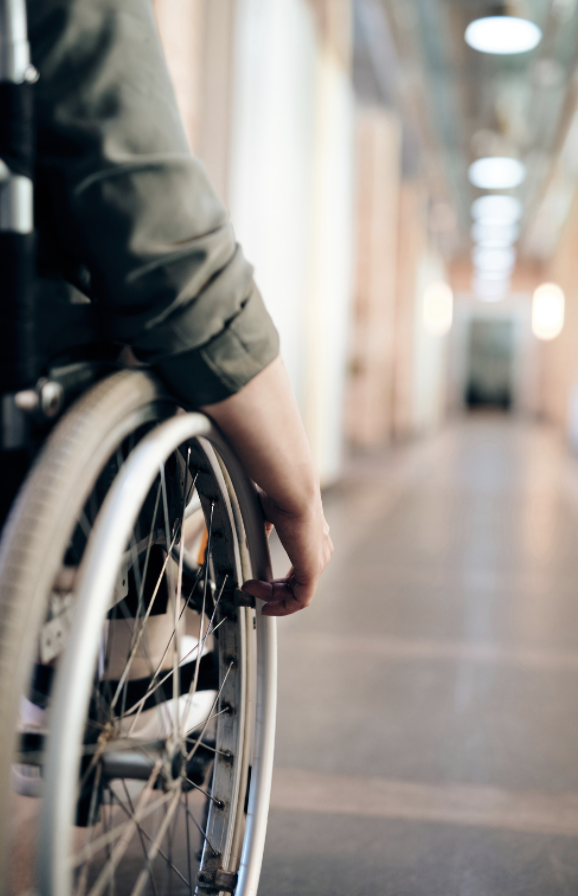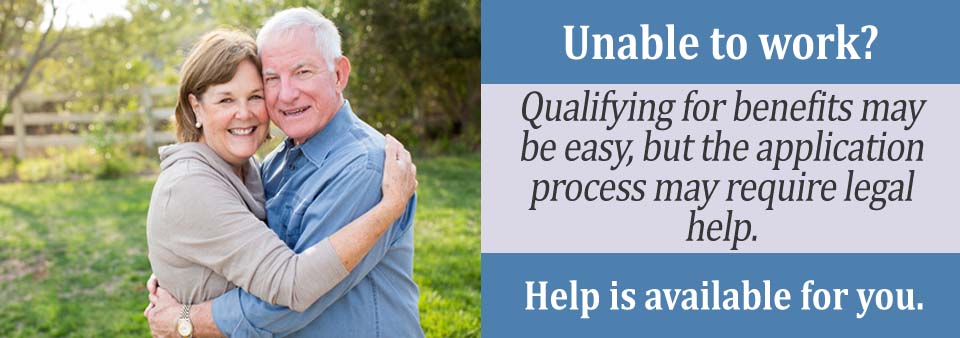Thousands of Americans suffer from a wide array of crippling disabilities. Thankfully, for those who require assistance, Social Security Disability Insurance (SSDI) and Supplemental Security Income (SSI) provide options to get help.
In order to be deemed disabled for SSDI or SSI services, individuals have to be disabled, whether of a physical, psychological, or mental type, which prevents them from doing a significant amount of work. Moreover, the illness of a person must have prohibited the individual from doing a significant amount of work for at least 12 months or is supposed to prevent an individual from working for 12 months.
If you think Social Security Disability programs could be for you, you may want to speak with a disability attorney or disability advocate for an assessment or for help applying for disability. However, before you start, here are the five best ways to determine if you may qualify.
#1: You’re Not Earning the Monthly SGA
SGA, or substantial gainful activity, is one of the main determining factors for those applying for disability. To engage in SGA, a person must earn more than a certain amount every month to be put toward normal living expenses. For non-blind individuals, substantial gainful activity is at least $1,620/month for 2025. For blind individuals, SGA is $2,700/month.
However, low income does not inherently mean you cannot work. The SSA will evaluate the circumstances in which you performed work. Similarly, high income does not necessarily mean that the disability claimant was doing SGA. Claimants can argue that their income would have been lower if they have evidence. Here are some examples of those circumstances:
- Needed special assistance from other personnel to perform the work
- Was permitted irregular working hours or multiple rest breaks
- Was supplied with special equipment or work particularly suitable for his or her disability
#2: You’re Unable to Work any of Your Previous Jobs
Before the Social Security Administration (SSA) awards benefits, they make sure that you are incapable of earning money at any of your previous jobs. To do this, they look at your past relevant work history (PRW), which includes:
- job descriptions,
- the physical demands of your past jobs,
- the physical difficulties you experienced at these jobs, and
- the reasons why your medical condition affects your ability to perform these jobs properly.
The more your PRW can justify your current situation, the more likely you are to receive disability benefits.
A total of 20 job credits accrued in the past 15 years are generally required for Social Security Disability applicants who are over 31 years of age.
If you are younger you may qualify for Social Security Disability benefits with fewer job credits. It is important to bear in mind that work credits only apply to SSDI benefits. You may be eligible to apply for SSI benefits even though you have not received any work credits.
#3: You’ve Worked Recently Enough to Qualify
To qualify for most Social Security benefits, you must prove that you have contributed enough money in taxes to the SSA to be considered for their programs. These contributions are called “credits”, of which you can earn up to four per year.
You typically need 40 credits to be eligible for disability insurance, 20 of which were obtained in the last 10 years before you became disabled. However, these numbers differ depending on your age — the younger you are, the less credits are required to qualify for disability insurance.
#4: You Experience Difficulty with Day-to-Day Activities
When the SSA evaluates your case, they will want to know how your medical condition affects your ability to handle the activities of daily living, or ADLs. ADLs include mobility, personal hygiene, dressing, cooking, cleaning, hobbies, social interactions, or other many personal needs.
If your medical condition prevents you from living a healthy, functioning lifestyle, you may be further eligible for disability benefits.
If you are looking to apply for SSDI, it is recommended that you schedule an appointment with your physician before applying so you can address your limitations and find out whether the doctor can assist you. If you wait to schedule an appointment after you apply for disability you may decrease your chances of being approved.
Do not expect that your physician will know all of your difficulties and limitations you experience. Doctors may be less knowledgeable of their patient weaknesses than the patients themselves. Even minor restrictions can be significant when the SSA is evaluating a claim.
#5: You Are a Legal U.S. Resident
Social Security benefits are most often awarded to citizens of the United States. While some non-citizens who contribute to Social Security taxes may qualify, those who are already citizens face far fewer steps in their application process.
How Do I Know If I am Eligible for Disability?
Substantial gainful activity (SGA) represents one of the most important factors in determining eligibility for Social Security disability benefits.
This means you must earn less than the amount of SGA allowed each month by the Social Security Administration (SSA). For 2025, the SGA for non-blind Americans is $1,620, while blind Americans must earn less than $2,700 each month to qualify for Social Security disability benefits.
Another important factor that answers the question, “Am I eligible for disability” concerns your ability to work. One of the main goals of the SSA is to find disabled Americans work to help them achieve financial independence. You’ll need to consult the SSA’s Blue Book listing to determine what records and medical documentation are necessary for your application for SSD benefits.
However, some medical conditions such as cancer and lung disease often make it impossible for a worker to remain on the job.
If a disabling condition has forced you out of work, you have to provide the SSA with documentation that proves your assertion. To determine whether you can work your current job or any other job for that matter, the SSA might ask you to undergo a Residual Functional Capacity (RFC) assessment.
An RFC assessment measures different mental and physical capabilities, such as how much weight you can carry around for a certain period.
The SSA refers to the results of an RFC assessment to determine whether an applicant for disability benefits can work in another occupation.
Knowing the answer, “How can I get disability” also depends on whether you have missed 12 consecutive months of work. Your employer submits timekeeping records to the SSA, while you provide the federal agency with copies of your bank statements.
Easiest Way To Get Disability
 The easiest way to file your claim for Social Security disability benefits is to work with an attorney or attorney who is already familiar with Social Security rules and regulations. Disability lawyers and non-lawyers alike know how to file your Social Security claim in the most likely way to have benefits approved for you.
The easiest way to file your claim for Social Security disability benefits is to work with an attorney or attorney who is already familiar with Social Security rules and regulations. Disability lawyers and non-lawyers alike know how to file your Social Security claim in the most likely way to have benefits approved for you.
A representative can also guide you through each step of the process, collect and prepare the documents required by Social Security, and answer any questions you may have about your rights.
Social Security's Compassionate Care Allowance (CAL) program maintains a list of conditions - 266 as of August 2022 - that can reduce SSDI processing times from months to days. The list includes fast-growing cancers, immune and neurodegenerative diseases, rare genetic disorders, and other conditions that, by definition, meet Social Security standards. and are likely to cause death.
The number of diseases on the list will continue to grow as it is updated annually and revised every three years. New additions are determined with input from the medical community, disability professionals, and the general pub.
Contacting a Social Security Attorney
If you feel that you may qualify for disability benefits, it is wise to consult with a disability attorney. A disability attorney is an irreplaceable resource when filing out applications, keeping paperwork organized, and aiding you in the appeals process if necessary. If you are denied disability after your initial claim, a lawyer can help you file an appeal. To give yourself the best chance at receiving the assistance you deserve, speak with a disability attorney today.
